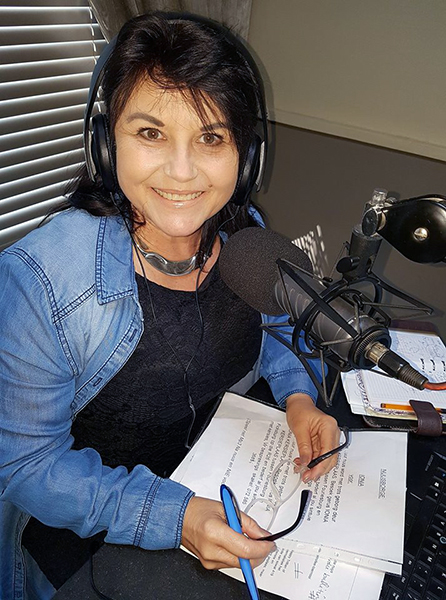Latest News Archive
Please select Category, Year, and then Month to display items
12 January 2024
|
Story Nonsindiswe Qwabe
|
Photo Sonia Small
 Since joining the UFS in 2008, Dr Grey Magaiza has worked extensively on approaches that can foster the socio-economic transformation of societies.
Since joining the UFS in 2008, Dr Grey Magaiza has worked extensively on approaches that can foster the socio-economic transformation of societies.
“The future should be one where communities can decide on their development agenda and futures. That’s the most important for me.” Dr Grey Magaiza, Deputy Director of the Centre for Gender and Africa Studies (CGAS) and Head of the Community Development programme on the Qwaqwa Campus, is passionate about capacitating communities to be agents of change and advancement. His vision for the future emphasises the empowerment of communities to take charge of their development by actively participating in decision making and the implementation of development projects that can improve their lives.
Since joining the UFS in 2008, Dr Magaiza has worked extensively on approaches that can foster the socio-economic transformation of societies. Over the years, he has crafted his research speciality into one that he is most proud of – being an interdisciplinary scientist immersed in the development of communities.
“I’m in a fortunate position of researching what I like. I say ‘fortunate’, because I’ve taken the time to understand what I’m passionate about, which is the overall field of rural livelihoods and livelihood futures – in short, community development. My research starts from an engaged university, understanding the elements that a university must use to enhance transformation and relevance to its immediate community in terms of development.”
One of the ways he has done this is by looking at social entrepreneurship as a development approach for young people in a rural setting. Through workshops with non-profit and civic organisations in Qwaqwa, Dr Magaiza has been helping these organisations to map out their needs and actively meet them through the involvement and support of external role players.
“We understand that communities are part of the national development agenda, but even that national agenda respects community knowledge and intentions and allows communities to shape their identity. A critical enabler of this is community organising. You bring back the capacity in communities to have dialogues on issues affecting them as spaces for engagement, knowledge exchange, and for people to just talk about their way forward.”
By enabling communities to define their development agenda, they can address their specific needs, challenges, and aspirations, he said. “When I look at livelihood futures, it’s quite an exciting aspect of my work – it’s like looking into a fortune tellers’ globe, because you’re not deciding for communities what they should do, but the communities themselves take those decisions.”
Academic volunteers time on community radio
2017-12-25

Dr Marian Human-Nel
Photo: Supplied
Superior Scholarship. Human Embrace. Institutional Distinctiveness. Emergent Leadership. Public Service.
These are the core values underpinning both the university’s academic and human projects. It is the last one, public service, that resonates well with Dr Marian Human-Nel. She does her part as a radio presenter and news reader on Maluti FM 97.1, a Bethlehem-based community radio.
“As a community radio station, we are not only responsible for entertaining and informing the public, but we also do a lot of community fundraising projects. We also do a lot of wellbeing activities in the Eastern Free State,” said Dr Human-Nel, Subject Head and Lecturer in the Department of Afrikaans, Dutch, German and French on the Qwaqwa Campus.
Sharing of information and knowledge
Dr Human-Nel volunteers her services as presenter of two programmes. “I present Kollig in which I invite my Qwaqwa Campus colleagues and professionals in the community to talk about their specific fields of interest and research. The focus here is on information and sharing knowledge. We have a slot called ‘This Week in History’ written and prepared by my colleague from the History department.”
Another show that Dr Human-Nel presents is called Fluit-Fluit Storietyd on which she reads and does voice performance of Afrikaans short stories and poems with specific music. “The Fluit-Fluit programme informs and entertains through cultural activities,” she said.
Maluti FM broadcasts over a 160-kilometre radius around Bethlehem and is also available online.